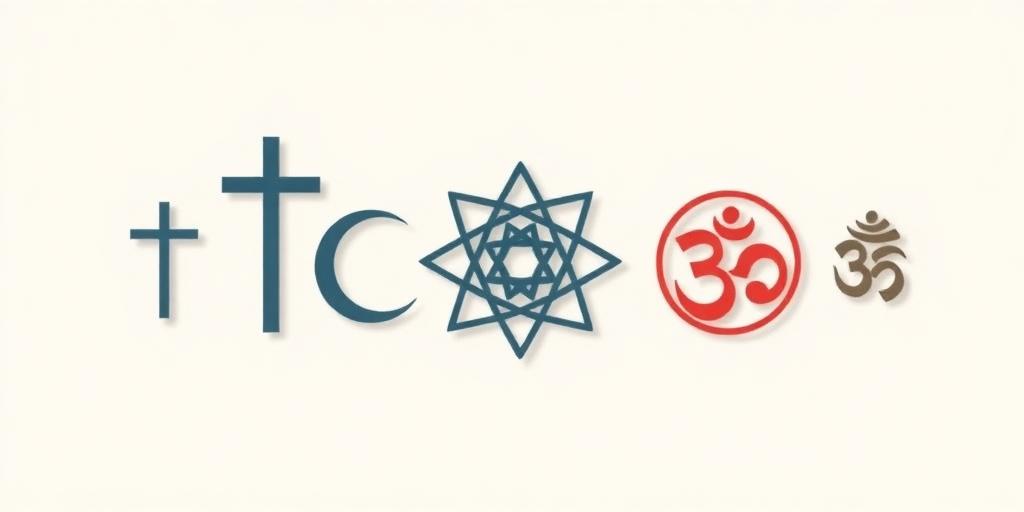What We Can Learn from Other Religions
In an increasingly interconnected world, the importance of understanding different cultures and belief systems cannot be overstated. Religions, as fundamental components of human civilization, offer a wealth of knowledge that can enrich our perspectives and foster greater empathy. By examining the core tenets, practices, and histories of diverse faiths, we can glean valuable insights applicable to our personal lives and broader societal challenges.
The Value of Ethical Frameworks
One of the primary lessons we can draw from other religions is the diversity of ethical frameworks they provide. While the specific moral codes may vary, the underlying principles often converge on themes of compassion, justice, and responsibility. For instance:
- Buddhism's Eightfold Path: Offers a practical guide to ethical and mental discipline, emphasizing mindfulness, right action, and wisdom.
- Islam's concept of Zakat: Encourages charitable giving and wealth redistribution, promoting social equity.
- Judaism's emphasis on Tikkun Olam: Highlights the importance of repairing the world through acts of kindness and justice.
By studying these ethical systems, we can refine our own moral compass and develop a more nuanced understanding of ethical decision-making.
Spiritual Practices and Mindfulness
Many religions offer profound spiritual practices that can enhance our mental and emotional well-being. Meditation, prayer, and ritual are common elements across various faiths, each serving as a means to connect with something greater than oneself. Consider:
- Hinduism's Yoga and Meditation: Provides techniques for cultivating inner peace and self-awareness.
- Christianity's contemplative prayer: Offers a path to deepen one's relationship with God through silent reflection.
- Indigenous spiritual traditions: Often incorporate nature-based practices that foster a sense of interconnectedness with the environment.
Incorporating these practices into our lives can lead to reduced stress, increased mindfulness, and a greater sense of purpose.
Understanding Cultural Diversity
Religion is inextricably linked to culture, shaping traditions, customs, and social norms. By studying different religions, we gain a deeper appreciation for the richness of human diversity. This understanding is crucial in today's globalized world, where intercultural interactions are increasingly common. Learning about religious festivals, dietary laws, and artistic expressions can:
- Promote tolerance and respect: By understanding the significance of religious practices to others, we can avoid misunderstandings and biases.
- Enhance cross-cultural communication: Knowledge of religious beliefs can help us navigate cross-cultural interactions with sensitivity and awareness.
- Foster global citizenship: By recognizing the shared values and diverse expressions of humanity, we can work towards a more inclusive and harmonious world.
Historical Context and Social Impact
Religion has played a significant role in shaping history, influencing political movements, social reforms, and artistic achievements. Understanding the historical context of different religions is essential for comprehending the complexities of human civilization. For example:
- The role of Christianity in the abolition of slavery: Highlights the potential of religious movements to advocate for social justice.
- The influence of Islam on scientific and intellectual advancements during the Golden Age: Demonstrates the capacity of religion to inspire innovation and learning.
- The impact of Buddhism on the development of peaceful conflict resolution strategies: Showcases the potential of religious teachings to promote peace and reconciliation.
By studying these historical examples, we can learn valuable lessons about the power of religion to shape societies and inspire change.
Conclusion
In conclusion, studying other religions offers a multitude of benefits, from enriching our ethical frameworks and spiritual practices to fostering cultural understanding and historical awareness. By approaching different faiths with an open mind and a willingness to learn, we can cultivate greater empathy, promote tolerance, and contribute to a more interconnected and harmonious world. Embracing this interfaith dialogue is not just an academic exercise, but a vital step towards building a more inclusive and understanding global community.









